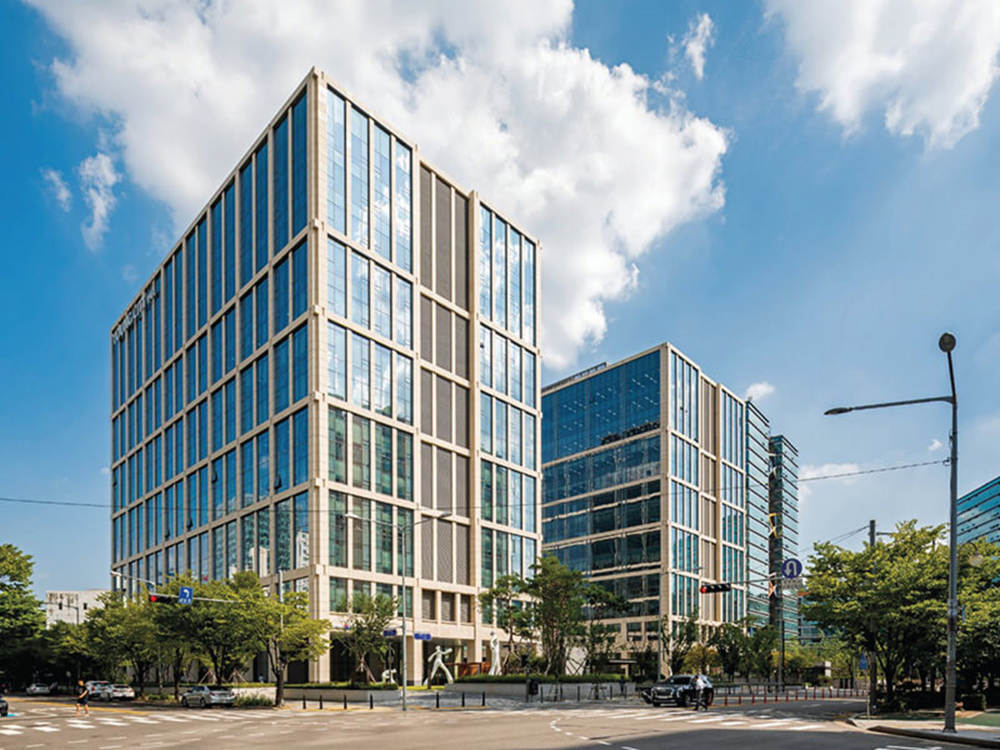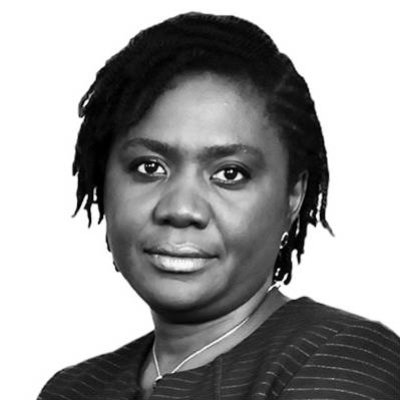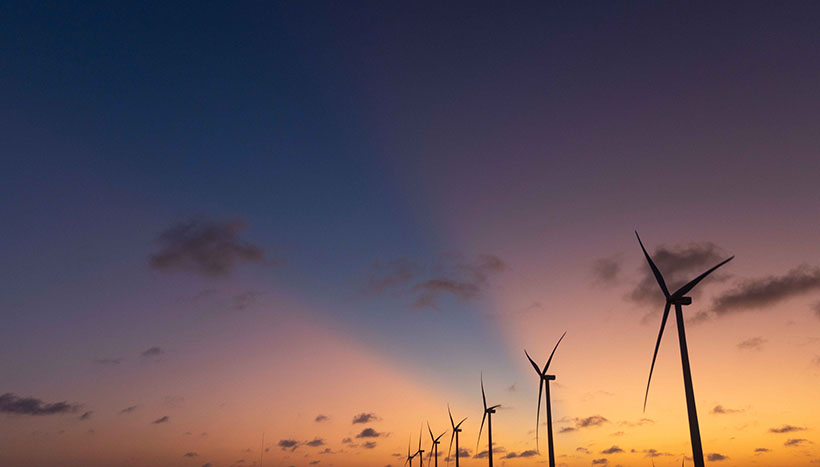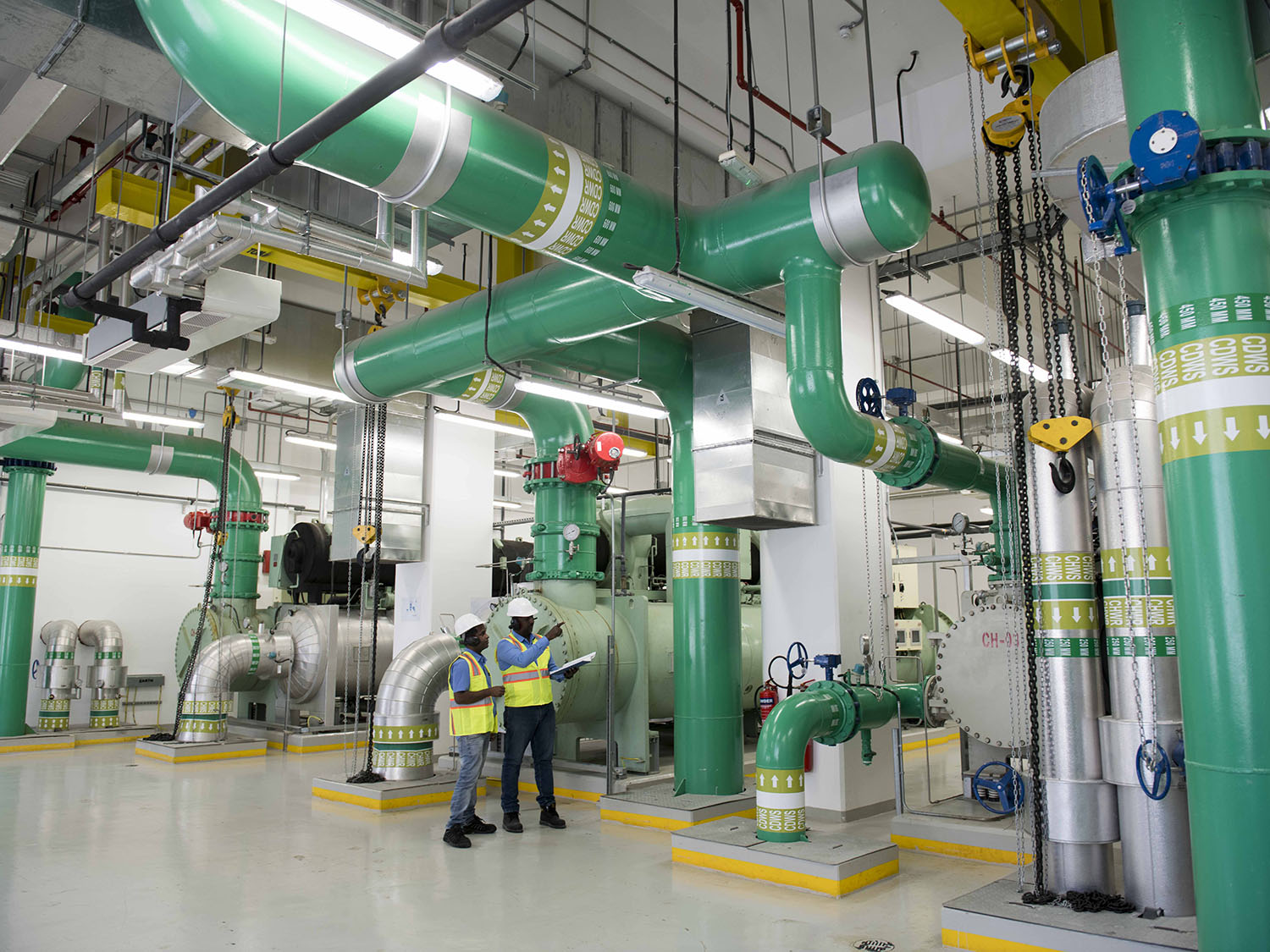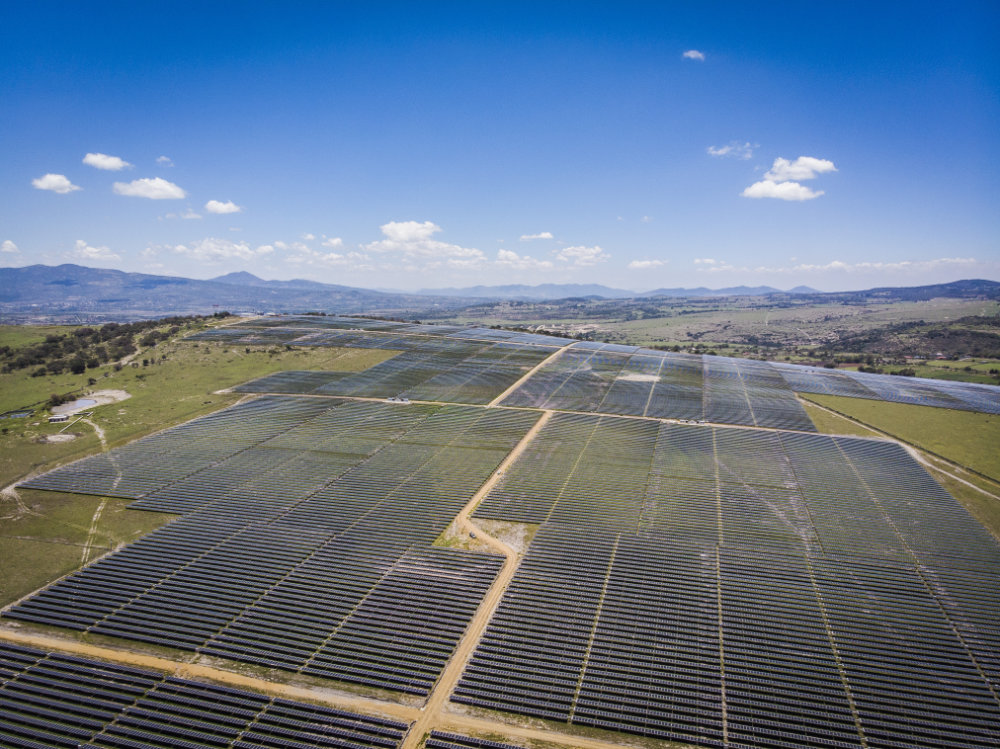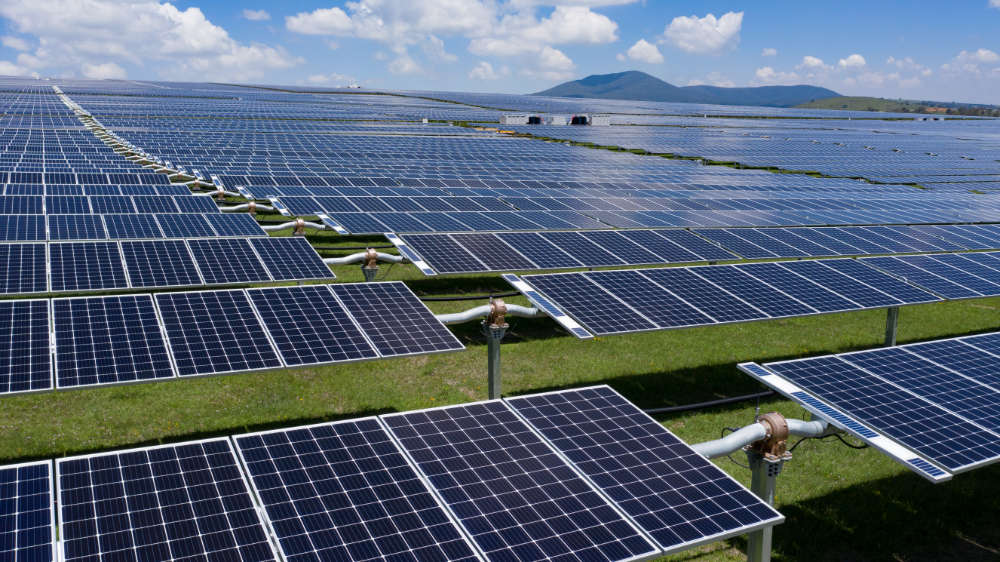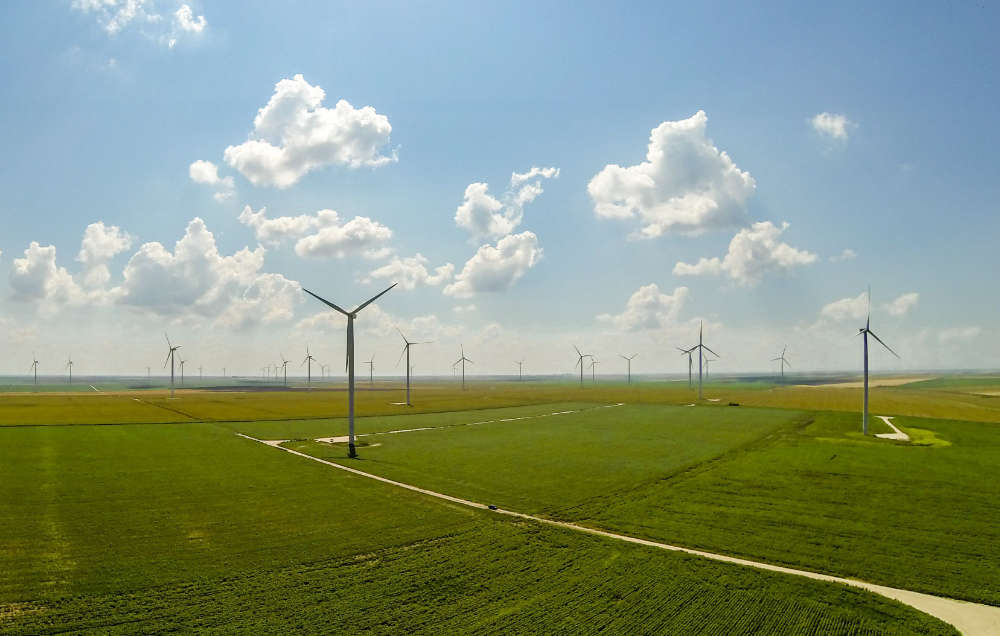Property is a significant contributor to global climate change, with construction and buildings combined accounting for nearly 40% of global CO₂ emissions.
The IEA points out that there is potential for global building energy demand to remain flat between now and 2040, despite total building floor area growing by a further 60%. On average, buildings in 2040 could be nearly 40% more energy efficient than today by implementing ‘green’ building principles.
Green building is a building that, in design, construction and / or operation, reduces or eliminates negative impacts, and potentially creates positive impacts, on our climate and natural environment. There are a number of features which can make a building ‘green’, including but not limited to:
– Efficient use of energy, water and other resources
– Use of renewable energy, such as solar energy
– Pollution and waste reduction measures, including enabling of re-use and recycling
– Use of materials that are non-toxic, ethical and sustainable
In addition to having positive environmental impacts, green buildings also offer a number of economic or financial benefits for different stakeholders. These include cost savings on utility bills (through energy and water efficiency) for end users, higher property value for developers, increased occupancy rates and lower operating costs for building owners.
Globally, energy efficiency measures could create an estimated €280 to €410 billion in savings on energy spending. Industry professionals believe that green buildings command more than 6% increase in asset value and 14% lower operating costs over 5 years as compared to traditional buildings.
Emergence of local green building standards
Adoption of green building standards has varied in our markets. In Africa, there is now a trend of emergence in local green building councils affiliated with Green Star (South Africa’s green building rating) and adoption of the International Finance Corporation’s Excellence in Design for Greater Efficiencies (EDGE) tool, which provides a streamlined approach to encapsulating green building fundamentals for developers new to the concepts in developing countries.
In Asia, South Korea has developed its own green building certification system, the Green Standard for Energy and Environmental Design (G-SEED) that assesses eco-friendliness of buildings by evaluating eight environmental areas.
In China, the Ministry of Construction developed the Green Building Evaluation Standard. China also launched its Green Building Action Plan in 2013, requiring all public buildings, public residential buildings and commercial buildings with a gross floor area greater than 20,000 sqm to achieve at least one star in the China Green Building Evaluation Standard.
India implemented the national Indian Green Building Council (IGBC) rating tool with a focus around decarbonising the economy and a push to renewables. In South East Asia, Singapore led the effort by launching the BCA Greenmark certification which has now been adopted in several other countries in the region.
Green by design approach
In Africa, Actis has implemented a “green by design” approach to real estate investments that meets both our commercial and environmental goals. We hold one of the largest institutional portfolios of green-accredited assets in sub-Saharan Africa; a reflection of our commitment to meeting Africa’s growing infrastructure needs sustainably. Actis has built the first internationally certified green commercial buildings in Nigeria, Ghana, Kenya and Cameroon.
These include Heritage Place, One Airport Square and Green Star a LEED certified A-Grade office building in Lagos and Green Star rated- building in Ghana, both of which are 30-40% more energy efficient than comparable buildings. The first LEED certified retail mall in east Africa, and the Douala Grand Mall in Cameroon (under development) have attained the IFC EDGE green rating, with predicted savings of 29% and 51% in energy and water costs respectively.
Also in Kenya, the residential component of the Garden City mixed use development achieved Kenya’s first 4-Star Green Star rating for a multi-unit residential development. Actis industrial platform, Impact, is developing industrial estates in South Africa, Kenya and Zambia with an intent to reduce carbon footprint and conserve water. Impact is working with the South African Green Building Council to develop Zambia’s first green building standards for logistics and industrial spaces.
In addition to “green by design” principles, we have leveraged where feasible, the rapidly declining costs of solar PV combined with sub-Saharan Africa’s high irradiance levels, to deliver significant cost savings and lower emissions via the installation of rooftop solar solutions.
For instance, Garden City mixed use development in Nairobi, Kenya has one of Africa’s largest solar panel covered car parks which generates 1200 MWh per year. Actis’ Jabi Lake Mall is set to become Nigeria’s first solar-powered mall – a 600KW rooftop solar plant is being installed that will sell power to the mall. CO₂ emissions will be reduced by over 13,000 tonnes, while also providing cheaper and more stable energy as an alternative to the existing grid supply.
Most Actis real estate projects in Asia have generally applied for green certification standards (either local or international). For example, in South Korea, we have successfully obtained grade Green 2 and 3 G-SEED (e.g., roughly equivalent to LEED Gold and Silver respectively) for our commercial projects located in Seoul.
Some of the green features implemented to achieve these certifications include harvesting rainwater, reusing greywater, generating energy through solar panels, using geothermal energy, installation of energy efficient LED lights, and utilising ambient air whenever possible to minimise use of heating and cooling systems.
Our residential development projects in Pune, Bangalore and Gurgaon in India are targeted to achieve IGBC Green Homes Pre-certified Gold / Platinum or EDGE certification while our office development project in Gurgaon is aiming to achieve for USGBC Platinum. In addition to implementing energy efficient lights and water-saving fittings, generating energy though solar panel and harvesting rainwater, these projects also utilise sustainable building materials and provide for waste treatment and electric vehicle charging stations.
Recognising the environmental and economic benefits of green buildings, and in-line with our commitment to responsible investing, Actis has consistently adopted and will continue to prioritise green building principles in our real estate investment markets across our footprints.
Young City, Seoul
Certification: Grade Green 2 G-SEED (roughly equivalent to LEED Gold)
Max. capacity of rainwater harvesting facility: 435 ton / day
Estimated energy saved by using energy-efficient equipment: ~470,000 kWh per year by using LED lights, energy efficient fans and pumps
Energy generated with solar panels: ~100,000kWh per year
Other eco-friendly facilities: Capacity to reuse greywater: 54 ton / day
Energy saved compared to buildings. with the lowest energy efficiency rating (Level 7)1): ~42 mil KWh/year (Level 1)
Note: Primary energy saved. Ratings by Korea Energy Agency.
Young City is a development comprising of two 13-story office towers (99,140 m2 in GFA) located in the southwest of Seoul. What was once an industrial zone crowded with factories has become an attractive commercial zone with both office and residential buildings.
The transition is still in progress, transforming old industrial structures into unique and eco-friendly cultural space. Completed in November 2017, Young City is one of the earliest and most successful redevelopment projects in the area and has significantly contributed to the transition.
The buildings are certified for Green 2 G-SEED, which is a program designed and implemented by the government (roughly equivalent to LEED Gold). To obtain the G-Seed rating, the properties have to be evaluated by a government designated agency.
There are a total of 54 test items for commercial properties to evaluate the following eight subjects – (i) Site and Transportation, (ii) Energy and Environment, (iii) Materials and Resources, (iv) Water Efficiency, (v) Building Operation and Maintenance, (vi) Ecological Environment, (vii) Indoor Environment, and (viii) Innovative Design. Applicants for G-Seed must earn scores for the 54 tests, which will be used to determine the level of the certificate.
Heritage Place, Lagos
Heritage Place is a Greenfield development of a 14-floor, 18,000m2 international A-Grade, LEED-rated office tower in a defined location within a prime commercial area in Lagos, Nigeria.
The building offers international standard office space and services, designed to high efficiency and energy standards, in a market characterised by the low quality of existing office stock. Heritage Place is the first commercial building in Nigeria to achieve LEED certification in design and construction.
Heritage Place applies cutting edge technology to ensure it meets the rising environmental standards and has been designed to consume at least 30% less energy than comparable buildings in Lagos.
This is achieved via a combination of the building’s orientation which maximises natural light and ventilation, and minimises solar exposure, reducing the energy requirements for cooling, heating and air quality systems; use of high efficiency glazing and external thermal envelope that also reduces demand on cooling requirements; and automatic presence detectors and high – efficiency lighting reduce and resupply energy when and where it is needed.
This has helped lower the operational cost of the building considerably, with energy costs up to 40% lower as confirmed by some tenants.
Water is conserved from rain water harvesting to re-use in the irrigation of the gardens, condensate recovery from the building’s cooling units and accurate control systems in the bathroom facilities also reduce wastage.
High level of indoor air quality and occupant’s thermal and visual comfort are increased by ventilation rates, quality of materials and heat recovery through the centralised fresh air supply system.
Heritage Place received the Lagos Green Award for 2018 from the Lagos State Ministry of Environment, in recognition of its contribution to Lagos’ sustainable environment and its green credentials has been a draw to secure blue chip tenants with high awareness on sustainability including climate change.
